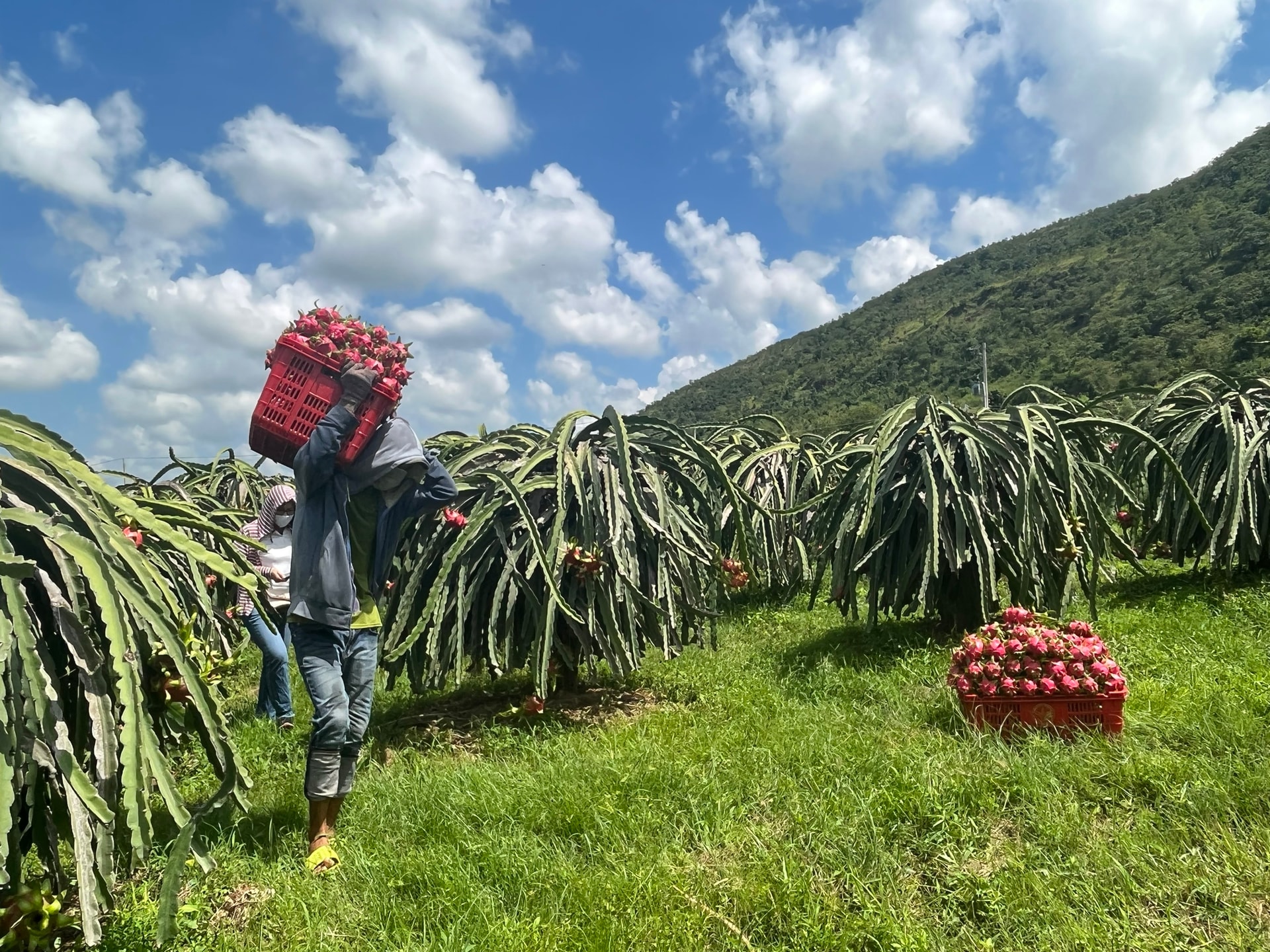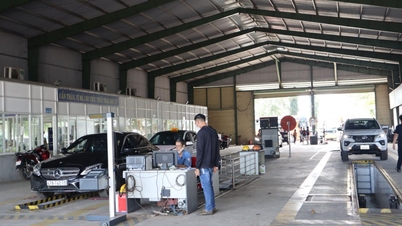The collective economy (KTTT), with cooperatives as its core, has recently recovered and developed in both quantity and quality. However, in addition to cooperatives that operate effectively, there are still some that exist in form, and the dissolution of these cooperatives faces many difficulties.
Many cooperatives "remain on paper"
Up to now, the whole province has 226 cooperatives, an increase of 4.6% over the same period in 2023, of which 195 cooperatives are operating, 31 cooperatives have stopped or temporarily stopped operating. In addition, there are 2 Cooperative Unions, namely Binh Thuan Dragon Fruit Cooperative Union and Binh Thuan Dragon Fruit Processing and Export Union, which are also "inactive". Besides the cooperatives that operate effectively, bringing many benefits to members and workers, there are still many weak cooperatives or cooperatives that have stopped operating for a long time but have not been dissolved.

The situation of cooperatives that have ceased operations but have not yet dissolved has significantly affected the image of cooperatives, the field of collective economy in the area and a part of members and workers. Not only that, it also causes difficulties for the management of local authorities and functional agencies... In particular, the province is focusing on propagating and replicating the new cooperative model, so the existence of "as good as not" cooperatives will reduce people's trust in collective economy and affect the development of the new cooperative model...

According to research, currently, many cooperatives have stopped operating but cannot dissolve due to difficulties in complying with legal regulations. Although members, leaders, and local authorities all agree to dissolve, but the implementation process is in accordance with regulations, some cooperatives still cannot dissolve due to tax procedures. According to regulations, before dissolving, cooperatives must complete tax debts to state management agencies. But currently, cooperatives do not have the ability to pay taxes, so they are still in tax debt, and therefore cannot dissolve...
Ms. Tran Thi Kim Thoa - Vice President of the Provincial Cooperative Union said that in addition to the problems of paying fines and late taxes, the storage and preservation of documents, seals and legal records of some cooperatives are not scientific , so they are lost, misplaced, and the legal representatives are no longer available or cannot be contacted. In addition, the regulations on dissolution of cooperatives under the 2012 Cooperative Law in some cases are not detailed, making the dissolution of many cooperatives unfavorable.

Open way for cooperatives
Some cooperatives said that if the cooperative ceases operations, all dissolution procedures must be applied according to the provisions of the Bankruptcy Law. However, the Bankruptcy Law does not clearly stipulate the criteria for cooperatives to go bankrupt and the sanctions for cooperatives. This makes it very easy for cooperatives to fall into a state of insolvency and not enjoy the benefits when carrying out bankruptcy procedures. In addition, Article 28 of the Bankruptcy Law 2014 requires that when submitting bankruptcy documents, cooperatives must have financial reports for the last 3 years. If the cooperative has been established for more than 3 years, it must include financial reports throughout its operation. However, the Law does not clearly stipulate whether the cooperative must submit financial reports, but whether these reports must be audited or not. Because in fact, at present, only large-scale cooperatives and cooperative unions have the capacity to conduct audits.
Dissolving inactive cooperatives is the Government 's policy to help the collective economic sector and cooperatives develop effectively and sustainably. Faced with difficulties in dissolving inactive cooperatives, in recent times, the Vietnam Cooperative Alliance in general and the Provincial Cooperative Alliance in particular, with the role of protecting the legitimate rights and interests of cooperatives, have coordinated with functional agencies and localities to advise, support, and guide cooperatives to convert and restructure inactive cooperatives, ineffective cooperatives, and bankrupt cooperatives according to the Bankruptcy Law 2014.

The Provincial Cooperative Union said that for ineffective cooperatives that cannot be consolidated, it will guide voluntary dissolution or propose the District People's Committee to consider compulsory dissolution for cooperatives that do not comply with the provisions of the current Law on Cooperatives in Decree 92 dated July 18, 2024 of the Government on registration of cooperative groups, cooperatives, and cooperative unions. Regulations on records, procedures, and order of dissolution of cooperatives and cooperative unions are guided in detail, clearly, and specifically in each case of voluntary dissolution or compulsory dissolution in Articles 50 and 51 of Decree 92. This is expected to create more favorable conditions for the dissolution of cooperatives that exist in form.

At the same time, to support and accompany cooperatives, the Provincial Cooperative Union will continue to strengthen innovation in activities, coordinate support such as training human resources, fostering professional skills for workers; promoting trade, expanding markets, advertising and introducing products to members; supporting cooperatives to access preferential loans to invest and apply scientific and technological advances in production...
Source: https://baobinhthuan.com.vn/kho-giai-the-nhung-hop-tac-xa-huu-danh-vo-thuc-124630.html




![[Photo] Prime Minister Pham Minh Chinh chairs meeting to deploy overcoming consequences of storm No. 10](https://vphoto.vietnam.vn/thumb/1200x675/vietnam/resource/IMAGE/2025/10/3/544f420dcc844463898fcbef46247d16)

![[Photo] Students of Binh Minh Primary School enjoy the full moon festival, receiving the joys of childhood](https://vphoto.vietnam.vn/thumb/1200x675/vietnam/resource/IMAGE/2025/10/3/8cf8abef22fe4471be400a818912cb85)



































































































Comment (0)